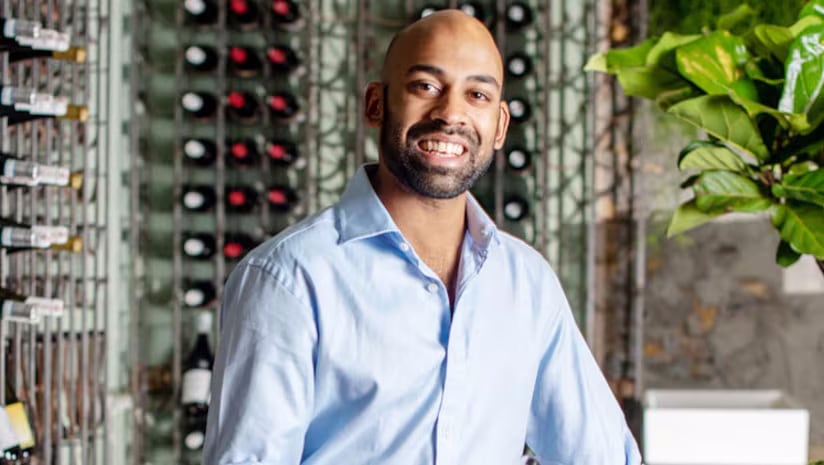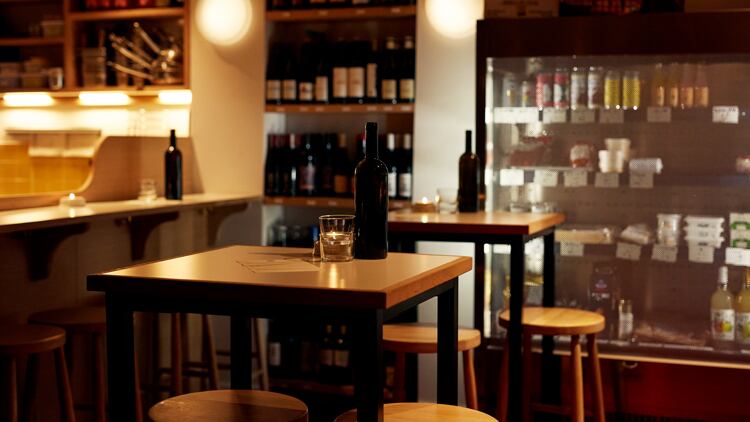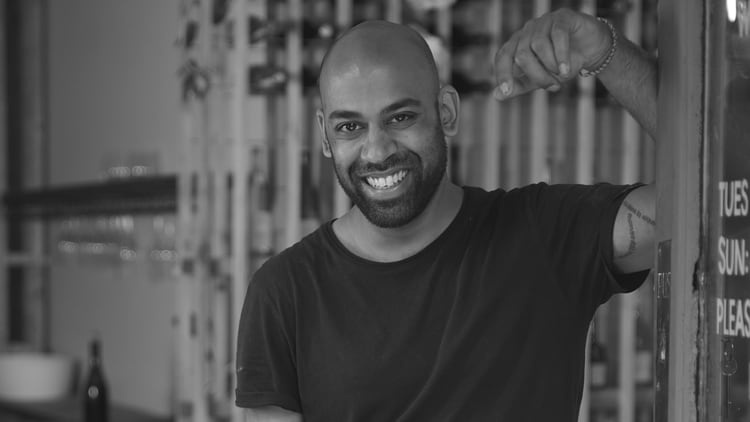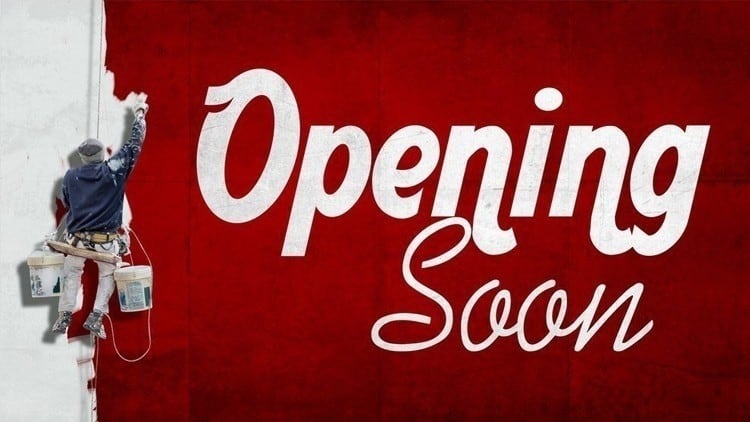Diogenes The Dog majors on the sort of wines that would flummox even the most experienced sommelier in a blind tasting. When I sit down with the south London wine bar’s founder Sunny Hodge to discuss his upcoming - and likely controversial - book on the science of wine we work our way through a Chinese cabernet franc, an Indian chenin blanc and a stunningly-good Taiwanese white blend of hybrid grape varieties including Taichung No. 3 and a local table grape called Mehone.
Hodge isn’t all that interested in where his wines come from (or anyone else’s, for that matter). Unlike most wine buyers, he takes an objective view when sourcing wines that is based solely on the liquid in the bottle and its price point. More often than not, he finds that the wines that offer the best value come from countries that would send the average wine drinker running for the hills.
Several years of working in this manner - Diogenes The Dog launched in 2018 under a block of flats five minutes’ walk from Elephant and Castle tube and was followed by the broadly similar Aspen & Meursault in Battersea in 2021 - and hundreds if not thousands of hours of self-directed research into what makes wine taste a certain way has led him to conclude that the concept of terroir is largely BS.
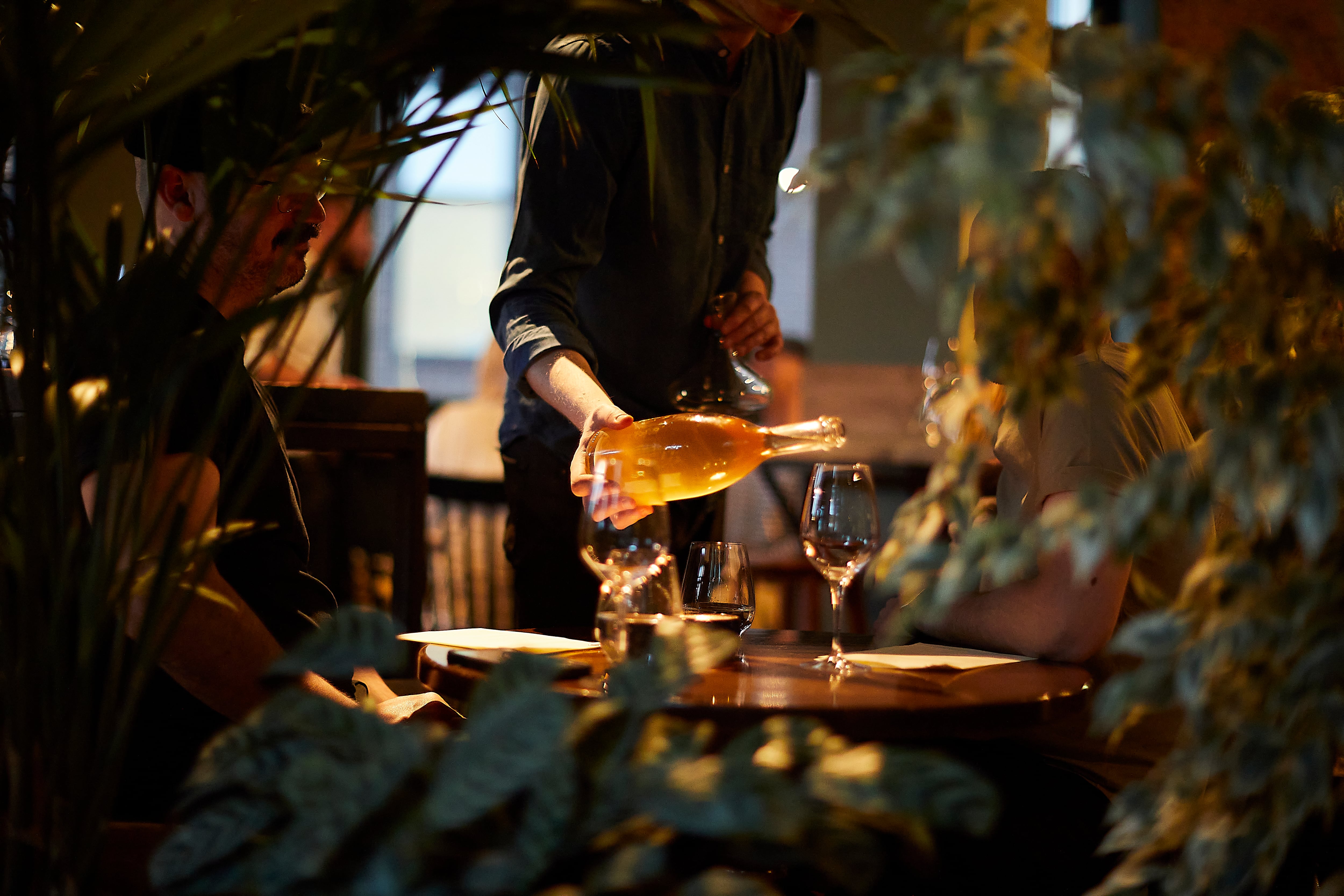
Debunking the concept of terroir
Due to be published later this month, The Cynic’s Guide to Wine (a nod to his first wine bar; the ancient Greek philosopher Diogenes being one of the founders of Cynicism) explores the scientific reality behind the drink including soil science, the anatomy of the grape itself and how human intervention in both the vineyard and the winery changes the liquid in the glass.
When you start to understand how it all gels together scientifically you realise that a lot of what you have been told about wine is inaccurate
This, Hodge says, means the book contains some hard truths about a concept that is fundamental to our understanding of wine and one that often plays a central role at the point of sale in restaurants that take their list seriously (terroir is a French term that describes the environmental conditions - especially soil and climate - in which grapes grow that give wine ‘unique’ flavours and aromas).
“When you start to understand how it all gels together scientifically you realise that a lot of what you have been told about wine is inaccurate. First among these is the idea that a wine transmits a sense of place. Wines taste a certain way not because of the terroir in which they are made but because of our expectations of how they should taste.”
This is an idea that is likely to be rejected wholesale by most in the wine trade, at least on first inspection. Usually, greatness in wine is attributed to the qualities of the soil, climate and winemaking traditions of the region from which it comes.
Grand Cru Chablis owes its flint-like minerality to the marine fossil-rich Kimmeridgian soils on which the vines grow. Burgundy’s complex vineyard classification system is predicated on the idea that tiny parcels of land impart certain recognisable characteristics into the wine. Whites vinified from grapes grown on the volcanic soils of Tenerife have a struck match quality that is redolent of smoldering volcanos.
“From a romantic perspective it’s cool. The problem is that very few people can precisely explain how these environmental factors impact on the finished product. Wines from volcanic wine regions, for example, taste like the grapes have been grown on the side of a volcano because we’re told they do. I mean, is it even possible to taste a volcano? I would like everyone to understand that a lot of this is just marketing,” says Hodge, who points out that human interventions in the vineyard that don’t tend to be talked about much by sommeliers - including unsexy topics like irrigation and the type of fertilisers used - have a much more pronounced effect on the final product than things like soil type and the exact angle of the hill on which the vines are grown.

Talking the talk
It probably won’t come as a surprise to learn that Hodge comes from a science background having read mechanical engineering at University College London, where he spent years poring over textbooks on thermodynamics, materials chemistry, fluid dynamics and triple integrations.
“Engineers develop a particular methodology for learning and understanding, and apply this to the world around them,” says Hodge, who fell into hospitality while studying, taking a job at Nando’s and later a more senior front-of-house role at Gaucho.
He excelled at selling wine at Gaucho and latterly high-end Covent Garden Italian Margot as duty manager despite knowing relatively little about it and understanding even less.
Wines from volcanic wine regions, for example, taste like the grapes have been grown on the side of a volcano because we’re told they do. I mean, is it even possible to taste a volcano?
“Like most, I learned to sell wine through vivid tales of vineyards, winemakers, appellations and the expectations of varietal character,” says Hodge, who likens this sales approach to an actor committing lines to memory. “Food and cocktails were quantifiable and spoken about technically: ways of curing, time in lemon juice, milliliters of vermouth, it all made logical sense. But wine was shrouded in mystery. Sommeliers spoke of clay and chalky soils but couldn’t explain what difference it made to the wine.”
Ahead of taking the job at Margot - which was at the time run by Paulo de Tarso and Nicholas Jaouën - Hodge was encouraged to swat up on wine so he picked up a few books that covered the wine regions the restaurant sold the most of, including Bordeaux and heavy-hitting Italian reds. “They gave wines scores out of ten, told me what flavours I should taste and what sorts of soils made up these prestigious wine regions. They left me with more questions than answers.”
Taking wine apart and putting it back together again
By his own admission, Hodge didn’t know that much about wine prior to launching Diogenes The Dog on a relative shoestring, but he knew enough to know he wanted to do things differently. Initially billed as an an anti-wine marketing concept, the venture defied the status quo with its short, regularly-changing list and focus on wine producing regions that could, if you were feeling generous, be described as up and coming.
“Teaching ideas without a common language has been crucial to the success of the concept. We removed the old language of wine by taking all possible familiarity away from the wine list which made the teaching and reprogramming of wine understanding that little bit easier. The list cut away all the pretentiousness, assumption and ego which often accompanies wines we think we know.”
Aspen & Meursault followed a few years later. Its setup is similar to its older sibling across the river, but it is focused on natural wines (Diogenes The Dog offers a mix of natural and, for want of a better descriptor, conventional wines). “We don’t serve meursault (one of Burgundy’s most vaunted whites). I looked for some, but I couldn’t find anything that was worth the money. I wouldn’t want to put my team in the position of feeling like they’ve ripped off a customer selling them a prestigious bottle that isn’t as good as a wine further up the list. But we do have a nice Saint-Aubin (a slightly less glamorous AOC in Burgundy’s Côte de Beaune).
Dealing only in facts
So, if terroir isn’t part of the conversation, how exactly are wines described at his wine bars? Central to Hodge’s and his team’s approach is that they deal in facts and facts only.
“We talk about wines technically and scientifically, which is quite rare in wine service,” is the answer. “For example, when we talk about the natural wines we serve at Aspen & Meursault we explain what organics and biodynamics means in practice and how they affect the liquid in the glass. But we also remind people that technically natural wine does not mean anything.”
Hodge does touch on things that arguably fall within the terroir bracket, including altitude. “But we never romanticise,” he says when this is put to him. “For example, when we talk to people about our cabernet franc (which comes from the Helan Mountain range in China’s emerging Ningxia region) we explain precisely what growing grapes at a high altitude means for the wine in the bottle. The Cabernet Franc grape is high in pyrazine, a chemical that gives wine a pronounced peppery taste. In warmer climates it can be overpowering. Growing at high altitudes results in a more balanced wine in which you get some pepperiness, but it does not dominate.”
If you tell someone they are about to drink a wine from Texas or Poland that is going to have a very negative effect on how they perceive what’s in their glass.
Hodge also accepts that the taste profiles of certain well-known wines give his team an important framework on which to base their recommendations. As at many other wine bars that sell high-quality wines, less standard wines, less knowledgeable guests are asked about the more basic wines they drink at home in order to find something that is likely to suit.
Given both his bar’s focus on wines from less obvious and potentially off-putting places, providing tasters ahead of guests ordering a wine is essential. “People have prejudices. If you tell someone they are about to drink a wine from Texas or Poland that is going to have a very negative effect on how they perceive what’s in their glass. We offer a taste. If they like it, we tell them where it’s from and serve them a whole glass. At that point it’s too late for them to go back.”
Another thing that sets Hodge’s wine service apart from most other places is that the team doesn’t really dwell on the nuances of how a certain wine comes across in the glass. “I find the concept of someone standing at the table blurting out flavours and smells totally weird,” he says. “How does telling someone that a wine smells like strawberries, cherries and spice help? Who goes to a wine shop and asks for a wine that smells like strawberries? I want to formulate a new way of talking about wine because the way a lot of places do it is broken.”
Hiring staff green
To this end, Hodge doesn’t employ anyone with any experience in the wine world preferring to train from scratch. And he doesn’t fish in the same pool as most other people recruiting people for hospitality roles either. “I want people that are logical and able to retain and process a lot of information. Most people that have ended up in hospitality aren’t like that. People often end up in this industry because they don’t like sitting down and studying.
The concept of someone standing at the table blurting out flavours and smells is weird. How does telling someone that a wine smells like strawberries, cherries and spice help? Who goes to a wine shop and asks for a wine that smells like strawberries?
The concept of someone standing at the table blurting out flavours and smells is weird. How does telling someone that a wine smells like strawberries, cherries and spice help? Who goes to a wine shop and asks for a wine that smells like strawberries?
“In general hospitality does not attract academics. I have a lot of ex-lawyers and English literature grads. If someone has successfully completed a law degree, I know they are going to be good at learning and holding onto information.”
Within two weeks to a month working full time Hodge’s raw recruits are ready to be let loose. “The thing about this book and the training we offer is that it gives people the tools to talk about any wine. If you understand what’s in the book you can start to predict what a wine will be like based on logic. Roughly half our guests are from the wine industry.
“It’s amazing that within just a few weeks our team members have the confidence to talk to wine experts and potentially tell them something they don’t know,” says Hodge, who is in advanced talks with Ofqual to turn the content in The Cynic’s Guide to Wine into a course entitled The Science of Wine.
Hodge is far less cantankerous than his philosophy on wine might suggests and wears his considerable knowledge lightly. One might also reasonably assume that he is an outsider in the wine world, but that isn’t the case either. Alongside running his two wine bars, he consults, judges at big-name tastings including those run by the IWSC and gives talks on soil science to advanced WSET students.
“A lot of people have taken issue with my position on things,” he says carefully. “I often judge alongside people that hold the Master of Wine qualification at tastings. They don’t tend to know much about soil science but, on the other hand, there’s a lot of things they know about wine that I don’t.
“Wine is a huge subject and respect goes both ways. They have their expertise, and I have mine. The difference is that the science side of things is hugely underrepresented.”


